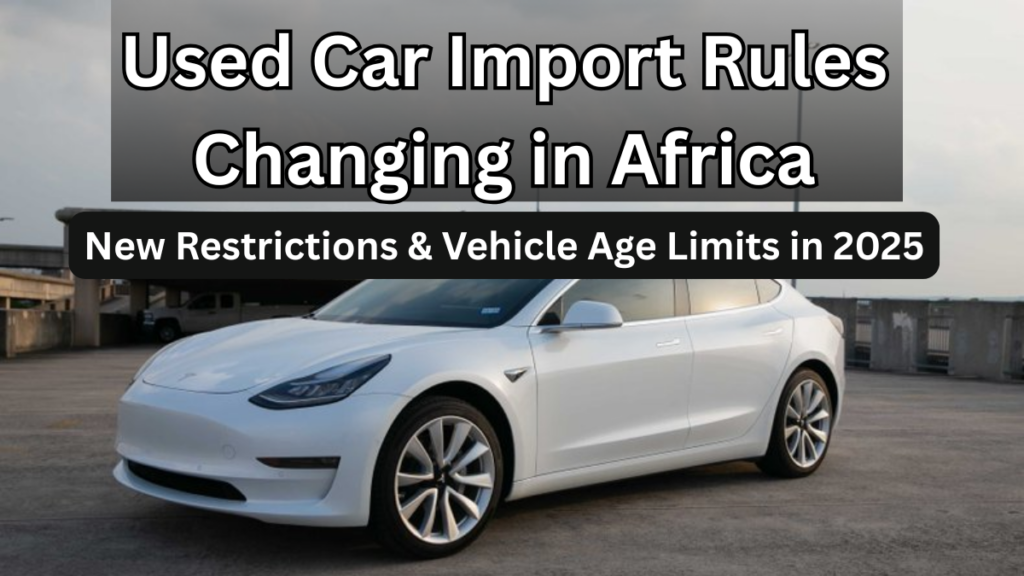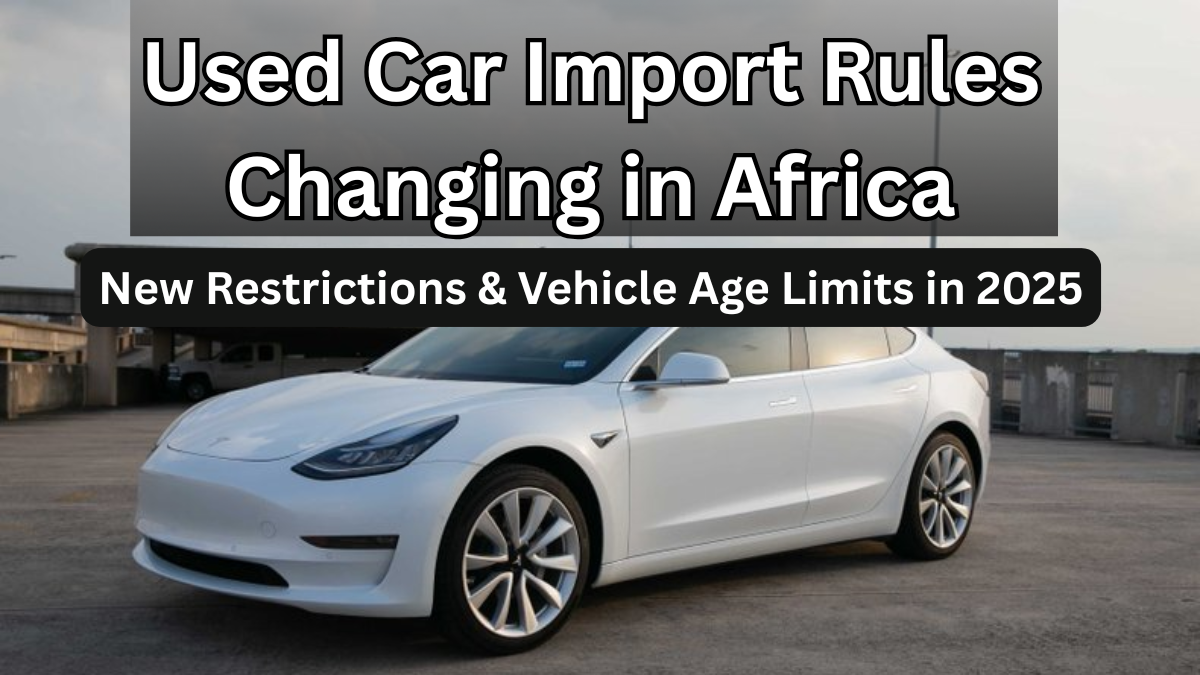Used car imports have long been a popular choice across African nations due to their affordability. But 2025 is bringing a major shake-up. Governments across the continent are now tightening rules to regulate quality, environmental safety, and vehicle age. If you’re planning to import a used car into Africa in 2025, here’s what you absolutely need to know.

Why Are Used Car Import Rules Changing?
Governments across Africa are becoming more concerned about:
-
Rising pollution levels caused by old and poorly maintained vehicles
-
Road safety risks from outdated technologies and worn-out components
-
Economic drain due to high foreign currency demand for imports
-
Support for local automotive industries
These regulation changes aim to promote safer, cleaner, and more sustainable transportation options while reducing dependency on second-hand imports.
Key Vehicle Import Regulations by Country (2025)
New Guidelines at a Glance
| Country | New Vehicle Age Limit (2025) | Additional Import Restrictions |
|---|---|---|
| Kenya | 5 years | Import duty revised, stricter emissions checks enforced |
| Nigeria | 10 years | Full ban on cars older than 2015, tariffs adjusted upwards |
| Ghana | 10 years | Emphasis on right-hand drive only; import bans on salvage vehicles |
| Uganda | 8 years | Mandatory carbon emissions certificate required |
| South Africa | Special permit required | Used car imports generally discouraged; permit approval takes longer |
What This Means for Used Car Imports in Africa 2025
For Individuals
-
Higher costs due to newer age requirements
-
Limited car options available for import
-
Need to verify compliance before purchase
For Dealers
-
More documentation and inspection requirements
-
Risk of penalties for non-compliant imports
-
Opportunity to shift toward eco-friendlier vehicle models
For Governments
-
Reduced pollution and increased road safety
-
Boost to domestic car assembly plants
-
Increased revenue from stricter import taxes
Environmental Impact at the Core
The Used Car Imports in Africa 2025 reform is also part of a larger effort to align with UN statistics on environmental sustainability and carbon emission goals. Outdated vehicles are being phased out to create space for more fuel-efficient, hybrid, and electric vehicles.
Tips to Stay Compliant
If you’re planning to import a vehicle in 2025, keep the following in mind:
-
Always check the latest national regulations before purchasing
-
Verify the age and emission certificate of the car before shipping
-
Work with licensed clearing agents familiar with 2025 compliance laws
-
Stay updated with regulation changes as countries are revising policies rapidly
FAQs
Q1: Why are African countries introducing new age limits for used car imports?
A1: The new rules aim to reduce environmental pollution, enhance road safety, and encourage the use of newer, cleaner vehicles.
Q2: Can I still import an older vehicle for personal use in 2025?
A2: In most cases, no. Many countries are enforcing stricter age limits and will reject older cars, even for personal use.
Q3: How will these regulation changes affect car prices in Africa?
A3: Prices for used cars are expected to rise slightly, as newer vehicles tend to be more expensive and meet stricter criteria.
Q4: Will electric or hybrid vehicles be easier to import under the new rules?
A4: Yes, many countries are offering incentives or relaxed rules for low-emission vehicles to promote eco-friendly transport.
Final Thoughts
Used car imports in Africa 2025 are undergoing a serious transformation. Whether you’re a buyer or a seller, understanding and adapting to these regulation changes will be critical. While it may seem restrictive now, the long-term goals are clear: safer roads, cleaner air, and more reliable transport systems for the continent.
Click here to learn more
Sachin is a dedicated writer specializing in education, career, and recruitment topics, delivering clear and actionable insights to empower readers.
